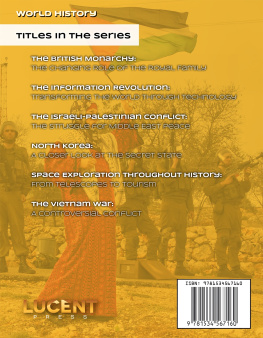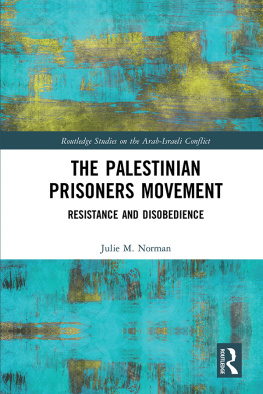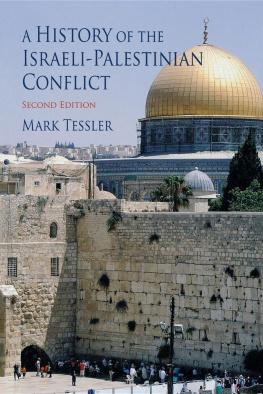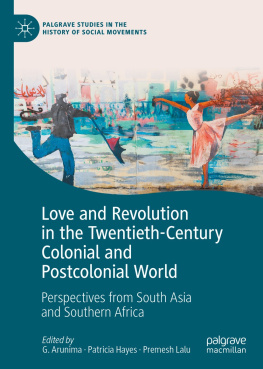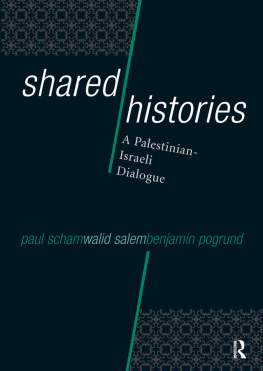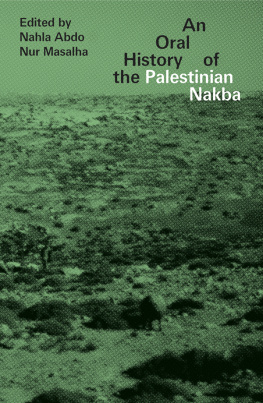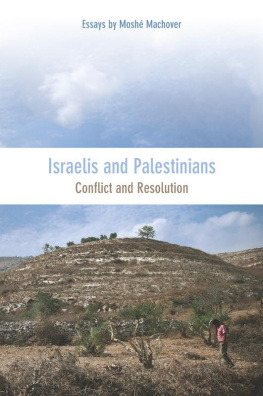Nahla Abdo - Captive Revolution: Palestinian Women’s Anti-Colonial Struggle within the Israeli Prison System
Here you can read online Nahla Abdo - Captive Revolution: Palestinian Women’s Anti-Colonial Struggle within the Israeli Prison System full text of the book (entire story) in english for free. Download pdf and epub, get meaning, cover and reviews about this ebook. year: 2014, publisher: Pluto Press, genre: Politics. Description of the work, (preface) as well as reviews are available. Best literature library LitArk.com created for fans of good reading and offers a wide selection of genres:
Romance novel
Science fiction
Adventure
Detective
Science
History
Home and family
Prose
Art
Politics
Computer
Non-fiction
Religion
Business
Children
Humor
Choose a favorite category and find really read worthwhile books. Enjoy immersion in the world of imagination, feel the emotions of the characters or learn something new for yourself, make an fascinating discovery.

- Book:Captive Revolution: Palestinian Women’s Anti-Colonial Struggle within the Israeli Prison System
- Author:
- Publisher:Pluto Press
- Genre:
- Year:2014
- Rating:3 / 5
- Favourites:Add to favourites
- Your mark:
- 60
- 1
- 2
- 3
- 4
- 5
Captive Revolution: Palestinian Women’s Anti-Colonial Struggle within the Israeli Prison System: summary, description and annotation
We offer to read an annotation, description, summary or preface (depends on what the author of the book "Captive Revolution: Palestinian Women’s Anti-Colonial Struggle within the Israeli Prison System" wrote himself). If you haven't found the necessary information about the book — write in the comments, we will try to find it.
Nahla Abdo: author's other books
Who wrote Captive Revolution: Palestinian Women’s Anti-Colonial Struggle within the Israeli Prison System? Find out the surname, the name of the author of the book and a list of all author's works by series.
Captive Revolution: Palestinian Women’s Anti-Colonial Struggle within the Israeli Prison System — read online for free the complete book (whole text) full work
Below is the text of the book, divided by pages. System saving the place of the last page read, allows you to conveniently read the book "Captive Revolution: Palestinian Women’s Anti-Colonial Struggle within the Israeli Prison System" online for free, without having to search again every time where you left off. Put a bookmark, and you can go to the page where you finished reading at any time.
Font size:
Interval:
Bookmark:
Captive Revolution
Captive Revolution
Palestinian Womens Anti-Colonial Struggle
Within the Israeli Prison System
Nahla Abdo
| Pluto Press www.plutobooks.com |
First published 2014 by Pluto Press
345 Archway Road, London N6 5AA
www.plutobooks.com
Copyright Nahla Abdo 2014
The right of Nahla Abdo to be identified as the author of this work has been asserted by her in accordance with the Copyright, Designs and Patents Act 1988.
British Library Cataloguing in Publication Data
A catalogue record for this book is available from the British Library
ISBN 978 0 7453 3494 3 Hardback
ISBN 978 0 7453 3493 6 Paperback
ISBN 978 1 7837 1184 0 PDF eBook
ISBN 978 1 7837 1186 4 Kindle eBook
ISBN 978 1 7837 1185 7 EPUB eBook
Library of Congress Cataloging in Publication Data applied for
This book is printed on paper suitable for recycling and made from fully managed and sustained forest sources. Logging, pulping and manufacturing processes are expected to conform to the environmental standards of the country of origin.
10 9 8 7 6 5 4 3 2 1
Typeset by Stanford DTP Services, Northampton, England
Text design by Melanie Patrick
Simultaneously printed digitally by CPI Antony Rowe, Chippenham, UK and Edwards Bros in the United States of America
Contents
. |
. |
. |
. |
. |
This book is dedicated to all women, especially Palestinians, who struggled and continue to struggle against all forms of oppression, particularly against colonialism and imperialism.
Acknowledgements
This book would not have seen the light had it not been for the collective efforts, time and stories of the many Palestinian women political fighters and ex-detainees. The mutual trust expressed by all the women in the conversations, their belief in the cause and hope for a better future which were at the centre of our conversations, both the one-on-one and the focus group, have contributed to the depth of the information in this book. Each of these women deserves a special thank you. Many thanks to Amne, Rawda, Khuloud, Itaf, Haleema F, Haleema A, Ahlam, Rawda, Munia, Aisha Ghada, Sonia, Ahlam, Ameena, Aida, Salwa, Doris and Iman. The contribution of other women who I also met outside of these two major events is also highly appreciated. I would also like to thank Mr. Issa Qaraqe who at the time was the chair of Nadil-Asir (The Detainees Club) and now is the Minister of Detainees. Many thanks to lawyer Walid Fahoum whose direct information on some of the women ex-detainees was very valuable. Thanks should also go to Inaash al-Usra organization for making available their documentation on political detainees. My thanks also go to the Social Science and Humanities Council in Canada for the institutional grant provided to carry out the field research.
To reiterate, this is truly a collective project to which various other people have contributed. Special thanks to my research assistant Maha Abdo-Sabbagh, whose knowledge and activism made my task a pleasant one. I am indebted to her for introducing me to these great women whose voices and words gave this book the value it deserves. Special thanks should also go to my editor Stephan Dobson for his extra patience with me and to Thrse Saba for her copy-editing work. Many thanks to David Shulman from Pluto Press, whose enthusiasm and encouragement throughout the writing process kept me going. Lastly, my gratitude to all those who contributed to this book would not be completed without paying a special tribute to my partner, Sami Zubi who did everything possible to keep me going and interested, despite the many ups and downs I underwent during the long process of writing this book. While all these people helped shape the book, the responsibility for it is mine alone.
Introduction
This book aims at making audible the hidden voices, stories and histories of women political detainees while simultaneously raising international awareness of the plight of over 5,000 Palestinian political prisoners who currently suffer torture and inhumane treatment in Israeli prisons. The significance of the issue of women political prisoners is rather clear, as it occupies a central position in current international and especially US politics. There is little doubt that the insistence of the United States on pushing the current IsraeliPalestinian peace negotiations, in which the issue of political prisoners is placed at the centre of the talks, is a result of the failure of this imperialist power to bring about any stability in the Middle East. The stories and documentaries produced on the systematic torture, sexual mutilation, rape and atrocities committed against women (and men) in the US controlled prison of Abu Ghraib has drawn international public attention to the question of political detainees, especially in the case of women.
The absence of academic and especially feminist institutional interest in the lives and experiences of womens anti-colonial armed struggle casts a question mark around the so-called progressive leanings of such institutions. Concerning Palestinian womens political struggle in Israel/Palestine, for example, an excess of feminist literature has been produced worldwide about womens involvement in the First Intifada (198792), and a plethora of Israeli Zionist and overwhelming orientalist writings were produced about Palestinian women freedom fighters and armed resisters after the Second Intifada (200003), yet hardly any literature analysing or accounting for the experiences of womens armed resistance historically, especially during the period of 196080 exists. All what existed then and continues until this day is an Orientalist depiction of Palestinian women as uneducated, anti-democratic and over-oppressed by their own culture and religion.
The significance of this study goes beyond a corrective mission; additionally, it voices what has been silenced or rendered invisible. This study is also concerned with demonstrating the difference between the status and role of Palestinian women (often lumped together as Muslims, Arabs and even terrorists in the Western imagination) and the latters real lived experiences. This study also makes visible womens roles in anti-colonial and anti-imperialist struggles, especially among Third World peoples (both in the West in the Diaspora and in the Third World itself) which have hardly, if ever, attracted the attention of institutionalized feminism.
The question of positionality, identity or location occupies an important space in the making of feminist methodology, particularly when research involves epistemological production and especially the type of knowledge which is based on womens lived experiences. Dorothy Smiths institutional ethnography (2005), which theorized an epistemology for understanding womens everyday experiences has contributed to feminist methodology. This was the starting point in conceiving the current project: uncovering the invisibility of Palestinian women freedom fighters, especially those militant fighters in the anti-colonial national liberation movement. The period in discussion here is the 1960s through the 1980s, a historical phase which included a high level of womens militant resistance throughout the globe. On a personal level, this research also was the season for sharing my personal experiences as an ex-political detainee, the fate which most political activists militant and not militant face.
Sharing or reflecting on my detention experience during the discussions with women political detainees played an important role in eliciting the sharing of information and knowledge among all participants; it also facilitated the conversations by removing what otherwise would have been seen as power relations between the researcher and the researched. The sensitivity of some of the discussions, especially stories related to sexual torture, require equally sensitive approaches to release deep and valued personal information. This methodological point does not suggest that women without the experience of political detention cannot understand or write about other women political detainees. The work, for example, of Barbara Harlow (1992; 1994; 1996) is very important here. When the research involves personal discussions with women ex-militant detainees, as is the case in this project, sharing ones experiences (especially that of the researcher), I argue, can play an important role in facilitating lively discussions and the overcoming of certain taboos with a certain degree of ease. More importantly, the researchers sharing of experiences of political activism with women in discussions presents a form of validation of political activism. In such research, the gap between the Academy and activism narrows. Further explanation of the methodology used in this research is presented later in this chapter.
Next pageFont size:
Interval:
Bookmark:
Similar books «Captive Revolution: Palestinian Women’s Anti-Colonial Struggle within the Israeli Prison System»
Look at similar books to Captive Revolution: Palestinian Women’s Anti-Colonial Struggle within the Israeli Prison System. We have selected literature similar in name and meaning in the hope of providing readers with more options to find new, interesting, not yet read works.
Discussion, reviews of the book Captive Revolution: Palestinian Women’s Anti-Colonial Struggle within the Israeli Prison System and just readers' own opinions. Leave your comments, write what you think about the work, its meaning or the main characters. Specify what exactly you liked and what you didn't like, and why you think so.

